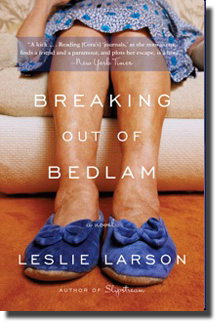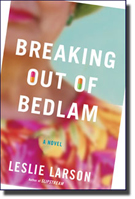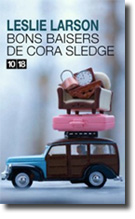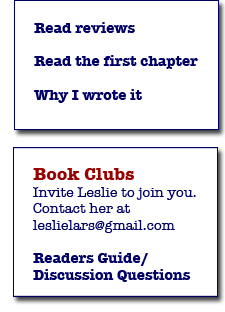
|
Why I Wrote Breaking Out of Bedlam:
The first hint seeped out at a family Christmas. I was seven or eight. The house was crowded and noisy. My cousins and I chased each other from room to room. A sudden commotion caused everyone to freeze. The room fell silent. Then my grandmother was crying, my aunt was apologizing, and my mother, when I asked what was going on, told me to hush up. My grandparents left in a rush. We hadn’t opened our presents yet, so I knew it was serious. No one would explain. My mother told me it was something that made my grandmother very sad, never to mention it again. That planted a seed in my mind, the way the unspoken always does. I had to wait until I was an adult to hear more. “I had an older brother,” my mother told me. “He died.” The truth was slowly squeezing out. “Nana had a little sock,” she said. “She circled his birthday on the calendar.” Years later, at a family reunion, a distant cousin asked me, “Did you know your grandfather had to be hunted down by the sheriff, dragged across state lines, and forced to marry your grandmother?” No, I didn’t. I asked for her Bible when she died. I was surprised she owned one at all because the only things I’d seen her read were the National Enquirer, biographies of Depression-era politicians, and smutty novels. Inside the Bible were a newspaper announcement of her marriage to my grandfather, a handkerchief with a duck on it, and a family tree. On a separate sheet of paper, she’d listed all twelve of her mother’s siblings, along with the dates of their birth and death. On the other side she’d subtracted the one from the other to see how long each had lived. Everything was written in her measured handwriting. She was proud of it. She said it showed she’d finished high school. Stories become more powerful when they’re suppressed. It may take generations, but sooner or later they bubble to the surface. Who owned slaves, who had children by them. What politician was really a drunk, a philanderer, a thief, or a murderer. Who suffered during the Holocaust, was born out of wedlock, or committed incest. My grandmother’s sister dropped a bombshell just before she died. The baby wasn’t my grandfather’s, she said. He married my grandmother to save her from disgrace when the real culprit skipped town. “I still see that son-of-a-bitch walking around here all the time,” my great aunt said. According to her, my grandmother never stopped loving him. Only in the few months before she died did my grandmother acknowledge what had happened. “She tried to abort the baby,” my mother said. “It tormented her until the day she died.” The last piece had fallen into place, but the story didn’t die with my grandmother. Secrets beg to be revealed. Our nature is to make sense of the few details we know, to fill in the blanks so the story makes sense. Breaking Out of Bedlam is my version of her story, based on the whispers I heard growing up, on the few faint clues—a newspaper clipping, a Bible, and a baby’s sock. More than that, it’s an explanation for the silence in my family, for my grandmother’s bitterness, her drug abuse and depression, for the way she ridiculed my grandfather. She and I were close. I wonder what she would say. Would she feel vindicated, or outraged? Would she be furious that so much was true, or disgusted that I got it all wrong? Would she laugh? Would she blame me for raising a circus tent over the flimsy poles of rumor? Was it possible, when all was said and done, that she would thank me? |
|
© Leslie Larson, 2010. All writings and artwork on this website are the creation and copyrighted property of Leslie Larson and may not be reproduced in any form without the express written permission of the author. |



 The only proof I have of his existence is a newspaper clipping the size of a Post-It note. He died on a Monday morning when he was three months old. The clipping gives the address where he died, my maternal grandparents’ house. The funeral was held there later in the day. My grandfather’s initials formed his name. G.K.
The only proof I have of his existence is a newspaper clipping the size of a Post-It note. He died on a Monday morning when he was three months old. The clipping gives the address where he died, my maternal grandparents’ house. The funeral was held there later in the day. My grandfather’s initials formed his name. G.K.